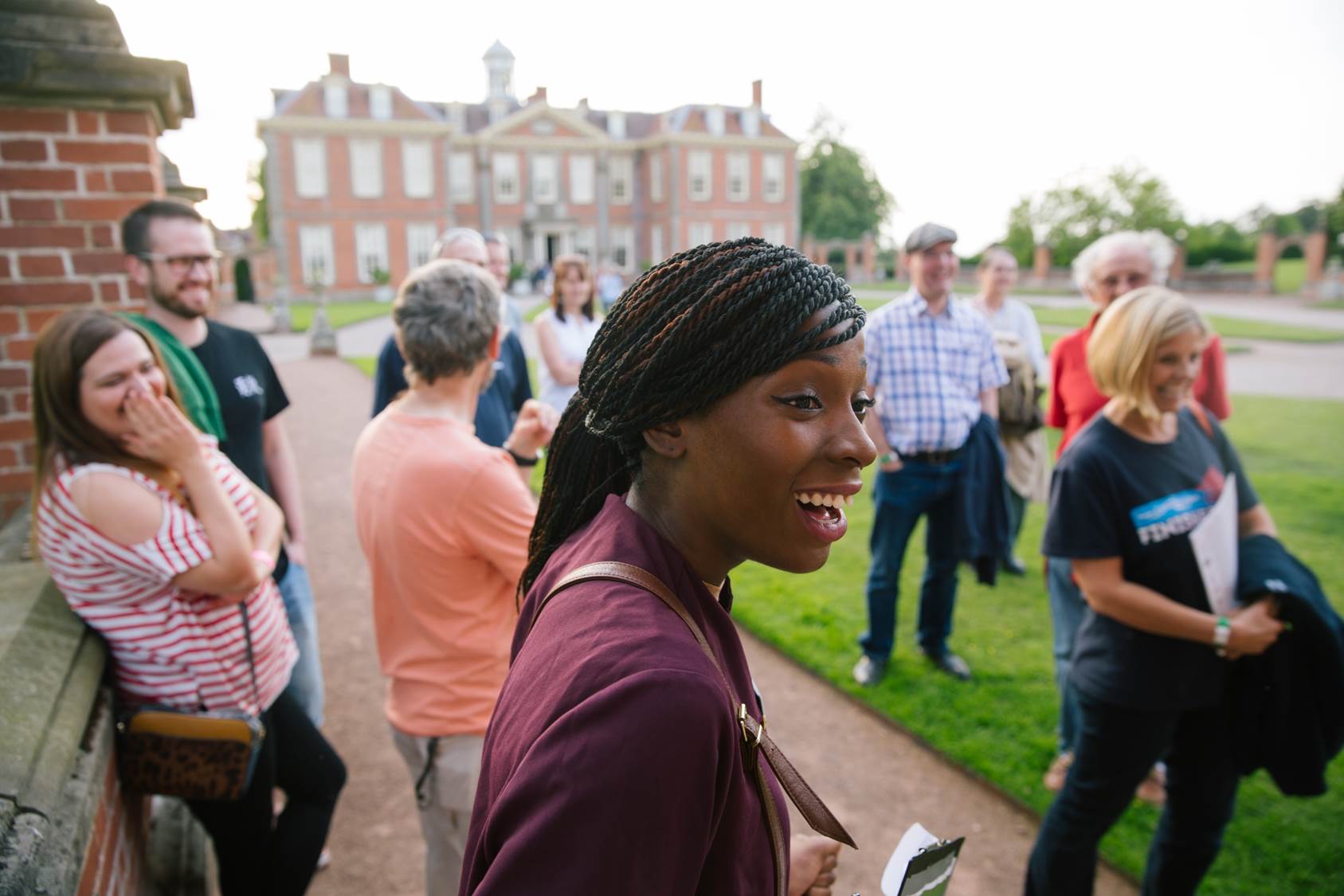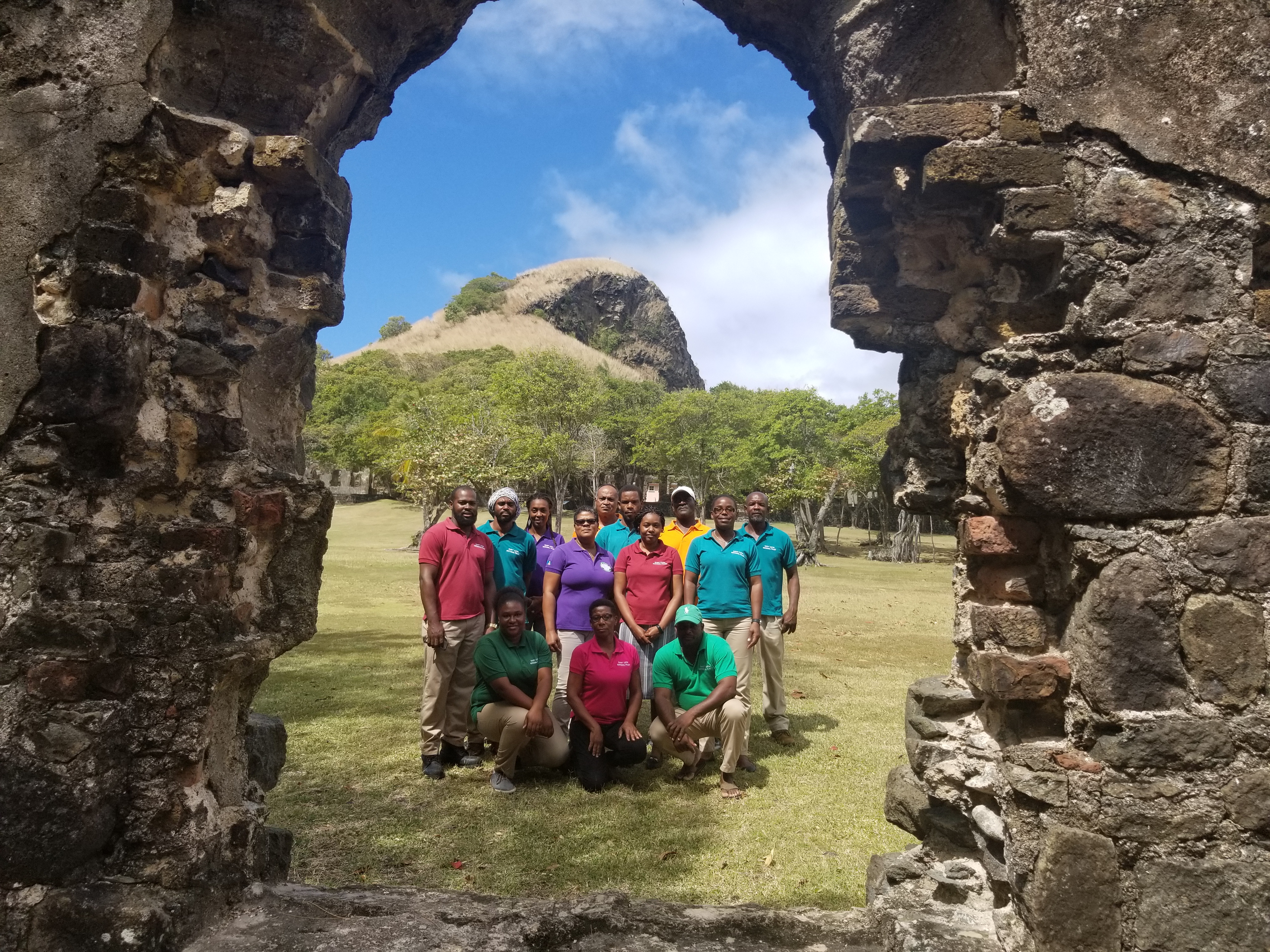-
For everyone: Open to change (Weekly blog, 17 March 2019)
Posted on March 17, 2019A blog by Catherine Leonard, Secretary-General
‘For everyone, forever’ is the motto of the Bermuda National Trust. It may sound familiar. The National Trust (England, Wales and Northern Ireland) often uses ‘forever, for everyone’ to describe its purpose. And it is not without controversy. There have been times when the places National Trusts look after have not felt like they are ‘for everyone’. And on the other hand, some people have complained about small, private places overrun by hordes.

Arms open conservation
Our Conference in Bermuda next week is grasping this nettle with both hands! Or indeed with ‘Arms Wide Open’, which is the overarching theme, under which sit the five strands: Firstly Open house and Open spaces. Then Open to all and Opening minds. Lastly, Open for business. (Neat, huh?)
Fiona coined this phrase to describe a new approach she promoted when she was Director-General:
“Yet by the time I arrived at the Trust in late 2000 it was clear that country house management and presentation needed, again, to move on. People were changing and expectations were changing. Though brilliantly effective for conservation, there was a risk that the Trust’s protective approach would put people off. Before being interviewed for the job of Director-General I’d taken my middle daughter, Rose, around a country house in Cornwall. Even she, a butter-wouldn’t-melt child, was shushed and frowned on as she chattered during our visit. These buildings were not saved by continuing to exist: they needed to speak to people, to embrace them and to mean something to them.”
Everyone is stealing with pride
And so that’s what I set out to do, stealing the phrase ‘arms open conservation’ from a visit to the US National Parks Service to explain what I meant. I wanted people to feel involved, enthralled and engaged in the spirit of place, and not be simply passive observers of it; I believed the Trust could only make that possible by enabling people to feel more at home, more welcome, and less inhibited by rules and regulations.
The ‘arms closed’ approach, where the Trust took charge, telling people what they could and couldn’t do, and the prevalent ‘do not touch’, ‘do not sit here’ and ”do not walk on the grass’ signs had, I believed, gone beyond what was necessary for high conservation standards, and risked alienating people in a world where the appetite for being instructed was ebbing. It was time, I believed, to move on from Lees-Milne’s ‘mummification’ and bring the houses to life. I wanted our supporters to see our conservation work in action and to feel part of the Trust’s great and inspiring cause.”
– Dame Fiona Reynolds, The Fight for Beauty: Our Path to a Better Future

Diversity in heritage
The Conference will explore the meaning of ‘for everyone’ to Trusts today. It seems to underpin discussions around access to heritage, community involvement, dialogue and understanding. The family of National Trusts has been taking steps to reflect the diversity of the communities around the places in their care, but is there more to be done? As we strive to strike a balance between remembering the past and understanding its impact on our multicultural present, what adjustments should we make to how we think about the heritage of different cultural groups, manage their diversity and recognise cultural rights?

Leadership panel
I’m particularly looking forward to the session chaired by Alana Anderson on 27 March. Some real heavyweights from our movement will debate ‘For Everyone: Promoting multiculturalism and diversity in heritage and conservation’. These include Fiona, who will talk about the process used to enable the organisation to embrace the changes outlined above.
Augustus Casely-Hayford of the Smithsonian’s National Museum of African Art, who will reflect on how we broaden our view of history to tell the stories of all our ancestors, particularly those from African heritage. HRH Princess Dana, President of the Petra National Trust, will speak about the role of cultural tourism and heritage conservation in sustainable development. Finally Dame Pamela Gordan-Banks, the first female Premier of Bermuda, will address diversity of our boards, staff, members and volunteers. In particular how do we engage woman of varying backgrounds to become involved.
It promises to be a fascinating session!

 44 (0)20 7824 7157
44 (0)20 7824 7157